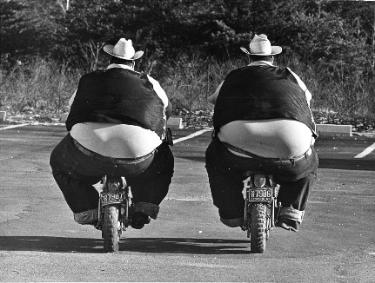Lone geniuses exist and are necessary, but they’re few and would never be able to advance society on their own. Progress is a cumulative process. While basic copyright laws are necessary for a stable economy, the human species is (fortunately) wired for imitation. Other animals mostly learn and die, their knowledge gone with them, whereas we can pass along methods and maneuvers. The opening of “Brilliant Impersonators,” Kat McGowan’s Aeon ode to the copycat:
“Imitation might be a form of flattery, but it is also a good way to end up in legal trouble. More than 6,000 lawsuits over patent infringements were filed in the United States last year. Samsung and Apple, locked in what’s been called the bloodiest corporate war in history, have jointly spent more than $1 billion in the past four years trying to prove that one poached the other’s smartphone technology.
In today’s world, inventors are our heroes and our saviours – the geniuses who keep the world economy surging forward, who bring us the newest playthings and the latest comforts. We rely on inventors to build a cleaner, happier, more prosperous future. Copycats are a threat to this cheerful vision. Not for nothing do we call them pirates; by cheating and stealing, copiers undermine the system. By profiting from the hard work of others, they reduce the incentive to create. They are a threat to the social order.
But according to a cluster of like-minded researchers, we’ve misunderstood how innovation really works. Throughout human history, innovation – including the technological progress we cherish – has been fuelled and sustained by imitation. Copying is the mighty force that has allowed the human race to move from stone knives to remote-guided drones, from digging sticks to crops that manufacture their own pesticides. Plenty of animals can innovate, but no other species on earth can imitate with the skill and accuracy of a human being. We’re natural-born rip-off artists. To be human is to copy.”
Tags: Kat McGowan

